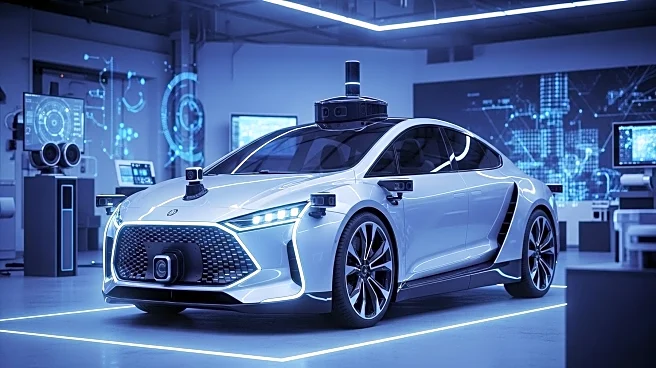What's Happening?
Nissan has unveiled its latest self-driving technology, developed in collaboration with British startup Wayve. The system was showcased in Tokyo using a Nissan Ariya equipped with advanced sensors, including 11 cameras, five radars, and a next-generation LiDar sensor. Nissan plans to launch its autonomous system in 2027, aiming to capture a share of the self-driving vehicle market, which is projected to reach $2 trillion by 2030. The automaker is focusing on AI, sensors, and data processing to enhance its self-driving capabilities.
Why It's Important?
Nissan's investment in self-driving technology is part of its broader strategy to revive its brand and improve margins. As the autonomous vehicle market grows, Nissan's collaboration with Wayve positions it to compete with other automakers advancing their own autonomous strategies. The development of self-driving technology could help Nissan stabilize earnings and strengthen its global competitiveness after years of underperformance. The push into AI-powered autonomy reflects Nissan's commitment to innovation and its potential to disrupt the automotive industry.
Beyond the Headlines
The deployment of autonomous vehicles faces regulatory challenges, particularly in the U.S. robotaxi sector. Automakers and tech firms have urged the Trump administration to address these hurdles to facilitate growth. The high cost of sensors and LiDar technology presents challenges for individual vehicle sales, but the robo-taxi use case offers higher utilization and potential profitability. Nissan's focus on self-driving technology aligns with industry trends, emphasizing the importance of innovation in maintaining competitiveness.








